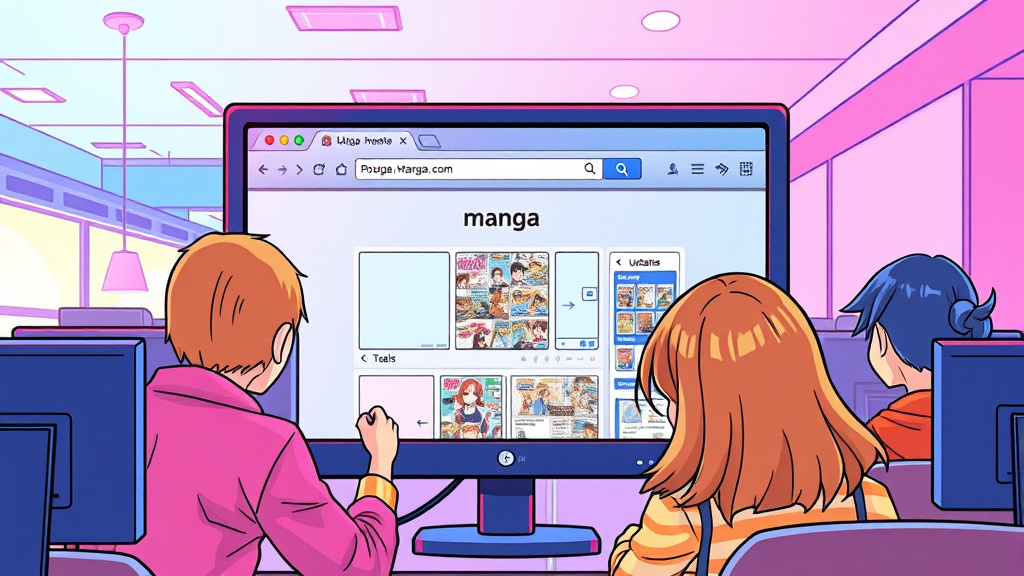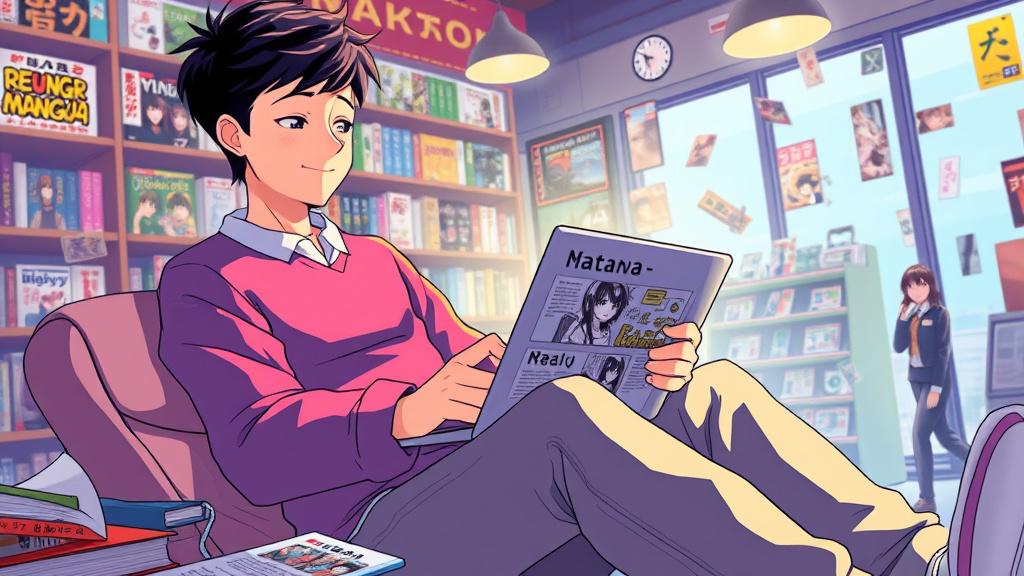In recent decades, popular manga books have become a cornerstone of global pop culture, captivating audiences across nations and generations. From sprawling epic sagas to intimate character studies, these manga series continue to enthrall readers with their diverse themes, artistic innovation, and storytelling depth. The enduring appeal of popular manga books lies in their ability to transcend cultural boundaries and deliver universal narratives that resonate deeply. Whether you're a seasoned manga enthusiast or just beginning to explore this dynamic art form, understanding what makes these series so compelling offers invaluable insights into the evolution of contemporary storytelling and cultural exchange.
Exploring the Enduring Appeal of Popular Manga Books
The allure of popular manga books can be attributed to their unique blend of rich artistry, compelling characters, and innovative storytelling techniques. Unlike traditional Western comics, manga often emphasizes detailed visual expression, which enhances emotional resonance and immersion. The enduring appeal also stems from their versatility—covering genres from adventure and romance to horror and science fiction—ensuring there is something for everyone. Furthermore, manga creators frequently explore complex themes such as identity, morality, and societal issues, which deepen connection and reflection for their audience. This multi-layered approach not only entertains but also invites readers to ponder profound questions within captivating narratives.
Moreover, the serialized nature of popular manga books fosters a sense of community and anticipation among fans. Long-running series develop dedicated followings that eagerly await each new chapter, forging a shared cultural experience. The accessibility of manga—available in print, digital formats, and online platforms—has further democratized access, allowing fans worldwide to connect. This accessibility, coupled with the influence of fandom culture and conventions, fuels the ongoing popularity of manga. Ultimately, the lasting appeal of these books is rooted in their ability to combine aesthetic excellence with storytelling that mirrors human complexity, making them timeless treasures in contemporary media.
 Hình minh họa: popular manga books – manga read online website
Hình minh họa: popular manga books – manga read online websiteA Deep Dive into the Top-Selling Manga Series of All Time
When examining the top-selling manga series of all time, a few iconic titles stand out for their exceptional popularity and cultural impact. Series like One Piece, Dragon Ball, and Naruto have sold hundreds of millions of copies worldwide, solidifying their place in manga history. These series are characterized by expansive worlds, memorable characters, and compelling narratives that appeal to a broad demographic spectrum. One Piece, for example, combines adventure, humor, and emotional depth as it chronicles the journey of a crew of pirates seeking the ultimate treasure. Its longevity—spanning more than two decades—demonstrates its capacity to evolve with its audience while maintaining core themes that resonate universally.
In analyzing these top-sellers, it becomes clear that their success is not solely due to commercial appeal but also their storytelling mastery. These series often feature layered character development, intricate plot arcs, and innovative world-building that invite readers into immersive universes. Additionally, the creators behind these hits, like Eiichiro Oda (One Piece) and Akira Toriyama (Dragon Ball), have established distinct artistic styles and narrative voices that define the series' identities. As a result, these manga have transcended their original medium—spawning adaptations into blockbuster anime, merchandise, and global fandoms—affirming their status as cultural phenomena.

Genre Spotlight: Analyzing the Trends in Popular Manga
The landscape of popular manga books is remarkably diverse, with genres evolving continually to reflect shifting audience interests and societal trends. Action and shonen manga dominate sales figures, driven by their high-energy stories filled with battles, humor, and heroism—think My Hero Academia or Attack on Titan. However, in recent years, there has been a noticeable rise in the popularity of genres like slice-of-life, horror, and psychological drama, which explore more nuanced emotional and social themes. This diversification points to a broader cultural movement toward stories that offer introspection and authenticity, resonating with older audiences and manga fans seeking depth beyond traditional genre conventions.
Trends within manga genres often reveal broader societal shifts. For example, the surge in LGBTQ+ themes and stories centered on mental health reflects increased awareness and acceptance in contemporary society. Similarly, mature themes involving political intrigue or moral ambiguity cater to adult readers and challenge stereotypes about manga as merely entertainment for young audiences. What's fascinating is how creators are blending genres to produce hybrid series—such as romantic horror or sci-fi comedy—that push boundaries creatively. Overall, the evolution of genres within popular manga books illustrates a dynamic industry attuned to cultural conversations and reader preferences, ensuring sustained relevance and freshness.
From Page to Screen: The Adaptation of Popular Manga into Anime and Live-Action
Adapting popular manga books into anime and live-action productions has been instrumental in amplifying their reach and cultural impact. This transformation often introduces the series to new audiences who may prefer visual storytelling or are less accustomed to reading manga. Successful adaptations—like the anime versions of Fullmetal Alchemist or Demon Slayer—bring vibrant animation, voice acting, and soundtrack elements that heighten emotional engagement. For many fans, these adaptations serve as a gateway into the original manga, sparking renewed interest and increased sales. Conversely, poorly received adaptations can sometimes diminish a manga’s reputation, emphasizing the importance of faithful and creative transliteration in the process.
Beyond broadening audience reach, adaptations also contribute to the storytelling of popular manga books, offering different reinterpretations or expanding on storylines. Live-action versions, though often more controversial among die-hard manga fans due to casting or stylistic choices, demonstrate the medium’s versatility. Overall, the adaptation process underscores the narrative strength of manga, proving it is a robust foundation for multi-format storytelling. As technology advances and production values improve, future adaptations are poised to become even more immersive, allowing manga’s visual artistry and complex storytelling to thrive in new dimensions.
The Cultural Impact of Popular Manga - A Global Phenomenon
The global popularity of manga signifies a remarkable cultural exchange, bridging geographic divides and fostering universal dialogue. Over the decades, manga has transcended Japanese borders, inspiring international fan communities, academic research, and artistic collaborations. This widespread appreciation has cultivated a shared language of fandom—one that celebrates characters, quotes, and artistry across borders. Notably, manga’s influence extends beyond entertainment, impacting fashion, art, and even social issues, where its narratives often challenge stereotypes or highlight marginalized voices. This cultural permeation underscores manga’s role as a powerful tool for storytelling and cross-cultural understanding.
Furthermore, the global reach of popular manga books has fostered cultural diplomacy, allowing Japanese mythology, values, and aesthetics to reach diverse audiences. Language barriers are increasingly surmounted through translations, official licensing, and fan translations, making manga accessible worldwide. These series often serve as cultural ambassadors, promoting Japanese history, traditions, and contemporary life. The shared enthusiasm for manga's stories and characters creates a sense of community that transcends national identities, emphasizing the medium's importance in shaping a globalized cultural landscape. Its influence continues to grow, contributing to a more interconnected world of arts and storytelling.
Beyond the Art: Examining the Storytelling Techniques in Popular Manga
The storytelling techniques employed in popular manga books are as diverse as their genres, but certain core practices consistently elevate their narrative quality. Manga artists utilize panel layouts, facial expressions, and visual cues to convey emotion, tension, and pacing effectively. Innovative use of page composition and visual symbolism helps to guide the reader's experience, sometimes creating dramatic contrasts or emphasizing pivotal moments. Moreover, many series incorporate non-linear storytelling, flashbacks, and multiple POV perspectives, which enrich the narrative and deepen character development. Such techniques demonstrate a mastery of visual storytelling that complements the written dialogue, making the manga a true marriage of art and narrative.
Additionally, popular manga books often emphasize character-centric storytelling, with elaborate backstories and internal conflicts that foster emotional investment. Writers skillfully balance action, humor, and introspection, creating a rhythm that sustains reader engagement over numerous chapters and volumes. The use of thematic motifs—such as friendship, sacrifice, or moral ambiguity—adds layers of meaning that resonate on a personal level. These storytelling techniques reveal that manga is not just about compelling visuals but also about sophisticated narrative craftsmanship, which underscores why these books maintain popularity even amidst evolving entertainment landscapes.
The Rise of Digital Manga - How Online Platforms Are Shaping Popularity
The advent of digital platforms has revolutionized how manga books are distributed and consumed, dramatically influencing their popularity and accessibility. Online manga stores and subscription services like Crunchyroll Manga or Manga Plus enable instant access to vast libraries of series, removing geographical and economic barriers for fans around the world. This digital shift has also allowed for faster publication cycles and a broader range of creator voices, fostering innovation and diversity within the industry. As manga continues to evolve digitally, creators experiment with webcomics and serialization on platforms like Webtoon and Pixiv, which attract newer audiences who prefer reading on mobile devices.
Furthermore, social media has played a crucial role in shaping the popularity of manga. Memes, fan art, and online discussions amplify engagement, creating vibrant communities that celebrate series regardless of traditional publishing boundaries. Viral moments or iconic panels can propel series to international fame overnight, transforming niche titles into global sensations. The rise of digitally native manga is not just a convenience but also an empowering tool that democratizes content creation and distribution. As technology advances, the symbiotic relationship between digital mediums and manga storytelling will likely foster even more innovative, accessible, and diverse popular books in the future.
Fan Communities and Fandom Culture Surrounding Popular Manga Series
Fan communities around popular manga books are as vibrant and diverse as the stories themselves. These fandoms extend beyond passive consumption, engaging actively through fan art, cosplay, fan fiction, and conventions. Such communities provide a sense of belonging and shared passion that enhances the overall manga experience. The social aspect of fandom culture enables fans to connect across borders, exchanging interpretations and creating new content inspired by their favorite series. This participatory culture fuels ongoing interest and keeps these series alive through discussions, memes, and collaborative projects.
Moreover, fandom culture often influences the direction of manga and its adaptations. Fan reactions can shape future storylines or inspire creators to explore themes and characters in new ways. Online forums, Discord servers, and social media hashtags serve as gathering places for fans to celebrate milestones or debate theories, strengthening the communal bonds. The fervor surrounding popular manga books illustrates how tightly intertwined storytelling is with community engagement. This cultural phenomenon exemplifies the power of shared narrative to foster global connections, making manga not merely entertainment but a collective movement that transcends individual screens.
Critically Acclaimed and Commercially Successful - A Look at the Balance in Popular Manga
Achieving a balance between critical acclaim and commercial success is a notable challenge in the world of popular manga books. While series like Berserk or Tezuka's Astro Boy are lauded for their artistic innovation and storytelling depth, many commercially successful titles focus on mass appeal through action and humor. The most successful manga often find ways to merge these aspects—producing stories that are both critically respected and popular among broad audiences. This synergy fosters sustainability within the industry, as creators and publishers maintain artistic integrity without sacrificing mass market appeal.
Interestingly, some manga achieve critical acclaim by pushing boundaries or exploring taboo topics, which can sometimes limit their mainstream success but elevate their cultural influence. Conversely, commercial hits often spawn merchandise, anime adaptations, and global licensing deals that extend their reach. The intersection of artistic quality and marketability ultimately defines the legacy of popular manga, demonstrating that these two elements are not mutually exclusive but often mutually reinforcing. The ongoing quest for this harmony drives innovation and diversity, ensuring that manga remains a vital and dynamic art form.
Future Trends - Predicting the Next Wave of Popular Manga Books
Looking ahead, the future of popular manga books seems poised for exciting innovations driven by technological advances and evolving cultural landscapes. With VR and AR integrating into storytelling, future manga could offer immersive experiences, blending traditional art with interactive elements. Additionally, increasingly diverse voices from around the world are likely to shape the narratives, broadening the thematic scope to include more varied cultural perspectives and social issues. The normalization of LGBTQ+ themes and mental health narratives will probably continue, reflecting societal shifts towards inclusivity and authenticity.
Moreover, the rise of AI-assisted art and storytelling tools could transform manga creation processes, enabling more creators to produce high-quality work and experiment with complex storytelling techniques. Authenticity and personal voice will remain essential in standing out in a crowded market, potentially leading to more niche and experimental series gaining popularity. As global connectivity deepens, manga’s influence will expand further, propelling new series that push artistic boundaries and resonate across cultures. The next wave of popular manga books promises to be innovative, inclusive, and more accessible than ever, securing its place at the forefront of global entertainment.
Conclusion
The enduring appeal of popular manga books is rooted in their extraordinary storytelling, artistic innovation, and capacity to foster vibrant, dedicated communities worldwide. From timeless classics to contemporary explorations of societal themes, manga consistently evolves through genre diversification, digital adaptation, and increasing cultural acceptance. As technology enables new forms of storytelling and global fandoms continue to thrive, manga’s influence is poised to expand further, bridging cultural divides and inspiring future generations of artists and readers alike. Ultimately, popular manga books remain a vital part of modern culture—an art form that captures the imagination, evokes emotion, and celebrates storytelling in all its complexity.





